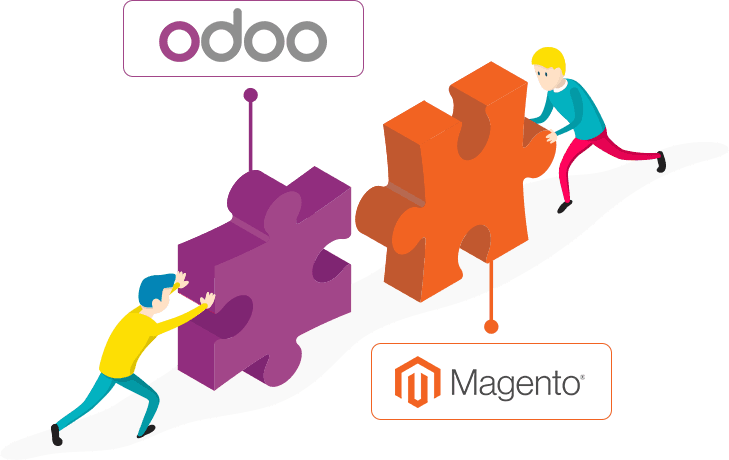
Choosing a platform is the first and probably the most important step in creating a technology-enabled business. You’ll have to decide between something built exclusively for you or something that already exists, depending on how you perceive your business.
There are two important questions that you need to answer right at the beginning:
1. Is your business focused on how you present and sell your products?
In this case, the Front-End will be an important part of your business. Therefore, a platform that was designed to optimize storefront customization and shopper experience, with highly extensible themes, might be the best choice, hence Magento.
2. Does your business require handling of warehouses, support and returns making it back-end heavy?
In this case, the Odoo platform might be the right choice, as it was built aiming to be much stronger on the Back-End.
Magento has been the leading ecommerce platform in the market, running on over 250 000 websites, while Odoo just recently entered this area of the market. Despite all the power of Magento, Odoo e-commerce is a force to be reckoned with.
While Magento can deliver a powerful Front-End derived from its backoffice/ themes functionalities, Odoo has the full package, integrating various business applications. This allows you to connect your e-commerce store with invoicing, inventory management, marketing, and other numerous applications.
Features and Functionalities
Odoo is a modular platform with an easy-to-understand user interface and offers several features, customization and integration.
Magento, on the other hand, is the most powerful e-commerce system available, which is open-source and SEO-friendly. It’s also a powerful CMS and has a massive community of active developers always coming up with new functionalities and extensions to power up your e-commerce.
Back-End functions
Odoo is a good option for small to medium businesses, as it not only provides an easy way to manage all business operations but also has a strong Back-End process.
When using Magento, we should remember it has an advanced backend but only for e-commerce-related functions. Another aspect of Magento is that its developers' community is extremely active, constantly coming up with powerful extensions.
An Overview
Odoo
Odoo helps grow a business, boosting e-commerce productivity and allowing you to achieve a higher Return On Investment (ROI). In a single platform, you’ll be able to manage all the tasks that your business requires.
Magento
Magento is considered one of the best e-commerce platforms out there. Magento e-commerce websites make online shopping easier with a better and simpler UX.

But we aren’t here to discuss which one you should choose. What I want to talk about is the possibility of connecting them and making them work together for your company's benefit.
Having the integration working will bring you a lot of benefits:
- Magento has a lot of themes, features and experienced integrators.
- You’ll have efficiency and flexibility in your business processes courtesy of Odoo.
- You’ll have the ability to import products from Magento to Odoo and you’ll also be able to import Magento customers into Odoo contacts and leads.
- All your orders and invoices from Magento will also be available on Odoo.
The bottom line is that Magento and Odoo combined can make your business run more quickly and efficiently due to simplification and automation of the online shop as well as optimization of your resources.
We’ve been working with Magento for some time now and we recently became Odoo Partners. You can check out what we can do for you here. Cover photo by rupixen on Unsplash